If you need poker terms explained, you’re reading the right article. Use this list of poker words with our guide to playing poker to get a better understanding of the game. We’re going to start by covering the basic terminology, plus a few less common poker words. Knowing these terms will help you play with friends and watch poker content.
If you’re curious about a term you've heard from poker commentators or other players, tell us about it!
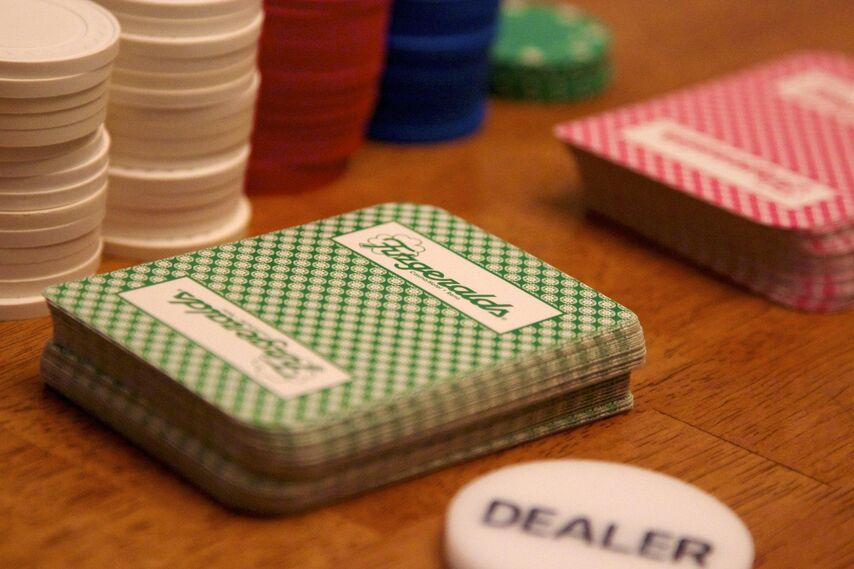
Basic Terms:
- All-In – This refers to moving all of your chips into play in a single bet.
- Bet – Making a bet means wagering chips before another player.
- Betting Rounds – There are four betting rounds in classic poker games. Check out our full guide to betting rounds.
- Blinds – Small mandatory bets that two players pay before cards can be dealt.
- Bluff – Making bets to pressure opponents when you don’t have a strong hand.
- Button – The “button” marks the dealer’s position at the table, which moves one position after each hand finishes.
- Call – This refers to matching a wager (bet) made by another player.
- Cash Game – You can come and go from cash games at any time, which is perfect for playing online. These games use chips with equal cash value, a $1 chip has a $1 value.
- Check – This refers to passing your turn without making any action.
- Community Cards – These are cards that all players can use to build their hand combinations. Games like Texas hold ‘em and Omaha poker have community cards.
- Dealer – The dealer is responsible for giving cards to players and controlling the game. Casinos have professional dealers and online poker has computerized ones.
- Draw – Sometimes we need specific community cards to make a stronger hand combination. This is called “drawing”.
- Flop – The first three community cards are called the flop.
- Fold – Giving your cards back to the dealer is called making a “fold”. For some fun examples, here are some of the worst folds in poker history.
- Hole Cards – These are private cards known to you, but not revealed to other players until a showdown at the end of the rounds.
- Limp – Limping is calling the blind amount during the pre-flop round. Many players think it shows weakness, but it can be a great idea to limp in some situations
- Raise – This refers to matching a bet and adding additional chips on top. For example, your opponent bets $5 and you make a raise to $10.
- River – The 5th and final card revealed in most poker formats is called the “river”.
- Showdown – After the betting rounds finish, the remaining players must show their hands to decide the winner. This is called the “showdown”.
- Tournament – Unlike a cash game, players must continue until their opponents lose their chips and exit the tournament. The top percentage of players win a prize, with most going to the 1st place player. Two of the best online poker rooms for tournaments are PokerStars and 888poker.
- Turn – After the flop, the next community card is called the “turn”.
We’ve got an in-depth guide to the rules of poker, where we’ve explained player actions in detail.
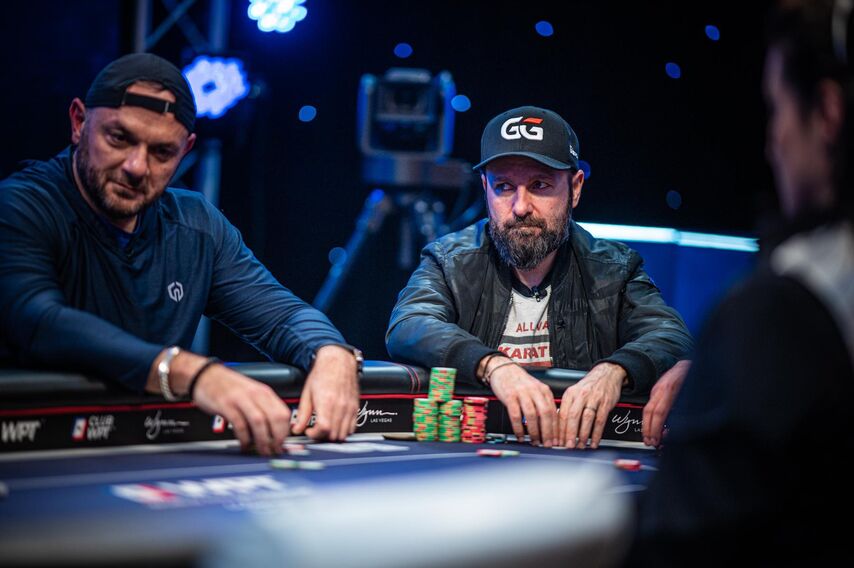
Other Poker Terms
- Burn Card – The top card (burn card) on the deck of cards is discarded before dealing the flop, turn, and river.
- Cooler – A hand of poker where both opponents have very strong hands and neither expects to lose the hand.
- Freeroll – This is a tournament without a real-money entry fee, but with a real prize for the winners. 888poker hosts more freerolls than most poker sites.
- Kicker – When one of your cards connects with the community cards, your unpaired card is your “kicker”. This card is important when you have the same pair as an opponent, but different kickers.
- Nuts – The “nuts” is an unbeatable hand. It’s the strongest hand combination possible, considering the community cards on the table.
- Pocket Pair – This refers to your hole cards being any matching cards, like two aces or two nines.
- Top-Top – This means you have a pair and the highest possible kicker. For example, you have a pair of aces and your kicker (unpaired card) is a king.
- Quads – Four-of-a-kind is often called “quads,” which means four matching cards.
Heard a poker term that isn’t on this list? Send a message to our team and get answers from experienced players.
Main Types Of Poker Games And Formats
Texas Hold ‘em – This is easily the most popular form of poker. Players have two hole cards and five community cards to use for hand combinations. There are four betting rounds and the bets are usually no-limit, meaning you can bet your entire stack if you want to.
Texas hold ‘em tables at 888poker are a great starting place. They’ll put up to $88 worth of bonuses in your account, just for signing up (no deposit required). You can play for free with play money or a wide range of real money stakes. Test the waters at $0.01/$0.02 or higher, with stakes up to $25/$50.
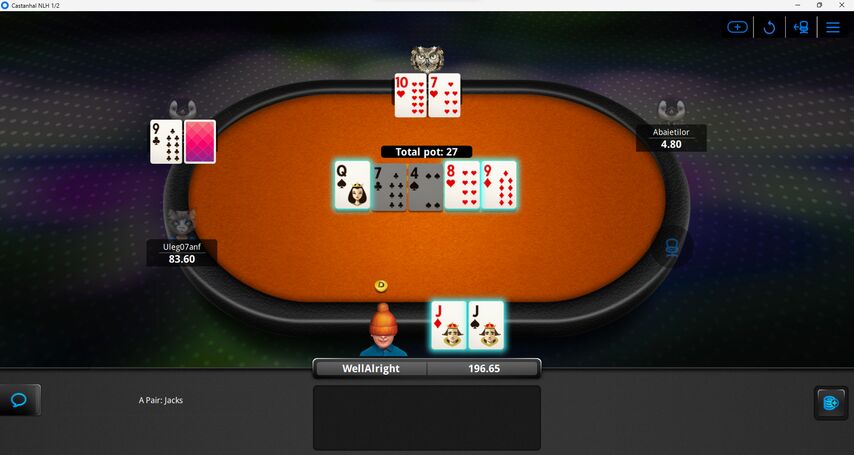
Omaha – There are lots of similarities to hold ‘em, but Omaha poker uses four hole cards instead of two. This increases the draws and complexity while making the game very exciting. Omaha is the second most popular style of poker and all major sites offer it.
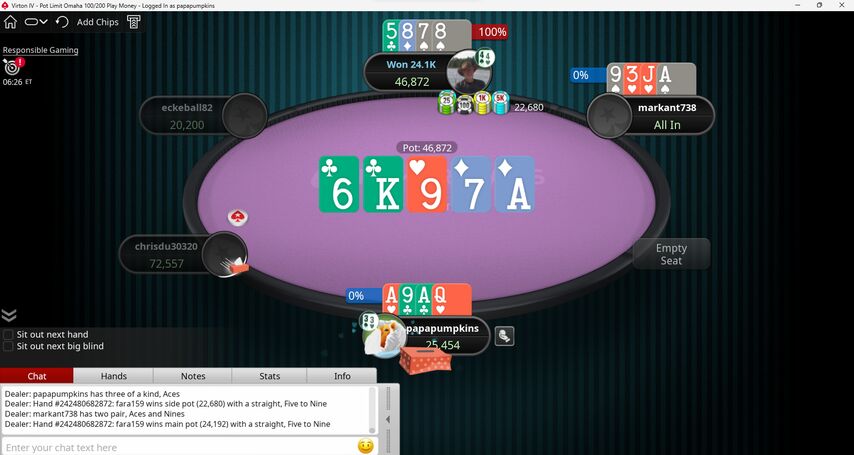
Omaha poker is best at sites with good traffic. PokerStars has one of the largest player bases in the world, with a good percentage at Omaha tables. Pot-limit is the most popular format of Omaha, where players can never bet more than the pot size. Try PokerStars with play money, micro to high-stakes, and even invite friends to Home Games.
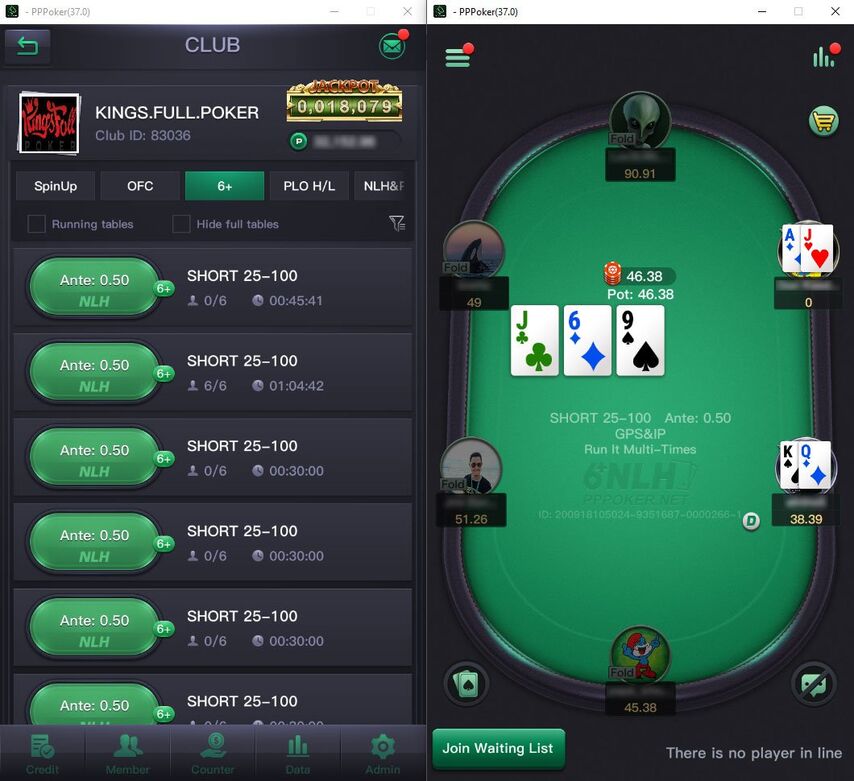
Short Deck – This format is becoming popular on poker club apps. The 2 through 5 cards are removed, which puts a lot more draws on the table. It’s often called 6+ Hold ‘em and you can try it out on poker club apps like PPPoker, PokerBros, and Upoker. We can help you find the best alliances and clubs to play in.
Click here for our full list of poker types.













